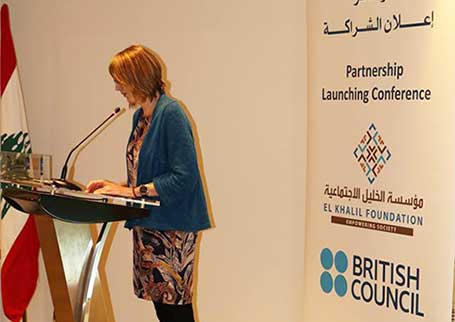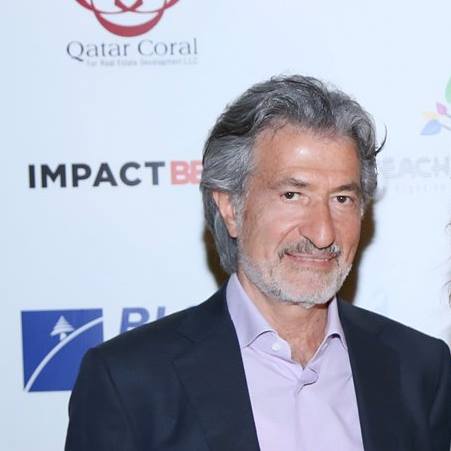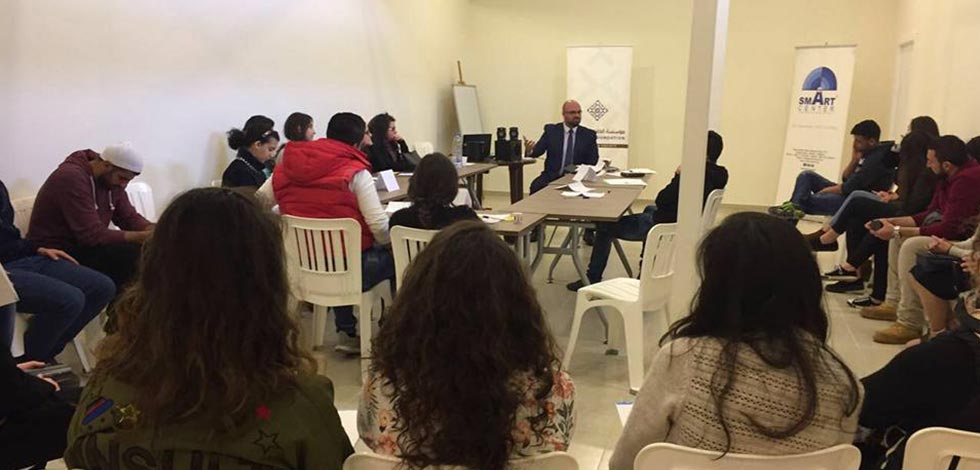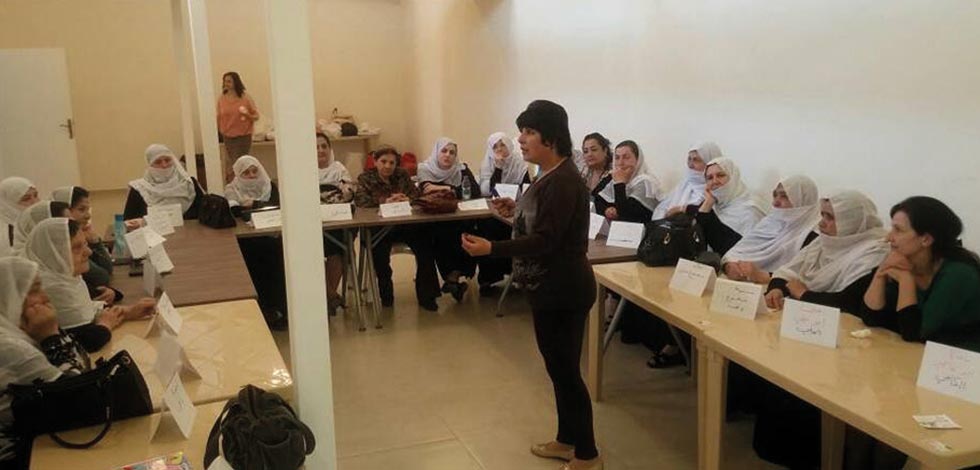A recent research that we have conducted found that almost equal numbers of youth wish to stay, as those wishing to leave their villages. Although this –in itself – is not significant in anyway, the reasons are obvious: youth wishing to stay is due to attachment to family, and those wishing to leave is due to the lack of opportunities and the inability to build a descent future. Though the youth realize that issues exist within their communities, most were, in general unable to specify what the real problems are or how to deal with them.
Our recent research showed that the Youth in general, do not feel that their communities represent them, nor understand their hopes and aspirations. They feel that in sense, they are locked into very conservative traditions, which have created serious gaps between generations. The Israeli occupation of 20 years, has, to some extent, imprisoned them in an “Ice Age” without the ability to interact with other communities and cities outside their region nor to exposure to the culture of the world. Furthermore, due to the limited opportunities to higher learning and to acquiring new skills, and due to their belief that they cannot impact change, the youth have become complacent and reluctant to innovate and simply bemoan their condition and frustration. In this thematic area similar to the previous one, programs included will benefit the youth, their skills and Leadership abilities and will have a ripple effect on society as explained below.
- Livelihood Skills trainings:
It is important to note that the major issue all young men and women face in our region is finding a job upon graduation. Although these young people are more and more likely to pursue formal education, upon graduation they often find that they are not adequately prepared for the work environment. Because skills relevant to key growth sectors of the modern economy – both technical and “soft” skills – are often not covered in traditional education systems, employers often find a “skills mismatch” between the competencies youth need to succeed in the workplace and those they actually possess. (It is true that there is a global employment problem, however those with the best skills are still finding jobs.)
The skills mismatch has continued to grow with globalization and as many countries transition to a more service-oriented economy. Employers are finding that regardless of their level of education, most new hires lack communication and client-relations skills; organizational and prioritization skills such as time-management; and Current LSY Programs flexibility and adaptability. Entry-level employees in many emerging markets may be technically overqualified, but lack teamwork and interpersonal skills, making collaboration with colleagues and problem-solving between team members difficult.
Life skills programs targeting youth in low- and middle-income countries have been shown to:
• Improve economic outcomes for youth: Life skills programs have been shown to increase the earning potential of young people. In addition, they position youth to obtain jobs of better quality and formality, measured by written contracts and employer-paid insurance. When young people are provided interventions that include non-academic supports in social-cognitive skills, learning outcomes improve as do completion/graduation rates.
• Change personal behaviour and social attitudes of youth: Life skills programs allow youth to create a life plan and equip them with the skills to take steps toward achieving their goals. They also help young people to better understand healthy personal behaviours, thus decreasing outcomes such as, drug and alcohol use, and interpersonal violence. As a result, they help to increase young people’s sense of self-esteem and expectations for their future and the future of their children.
Core Life Skills Programme trainings may include:
• Self confidence
• Respecting self and others
• Interpersonal skills (empathy, compassion)
• Managing emotions/ Emotional Intelligence
• Personal responsibility (including dependability,
integrity, and work ethics)
• Positive attitude and self-motivation
• Conflict management and Resolution
• Social Intelligence
• Communication (listening, verbal, and written)
• Cooperation and teamwork
• Creative thinking and problem solving
• Critical thinking
• Decision making
EKF Scholarship Fund
Education plays a vital role in shaping tomorrows’ leaders.
Acquiring new skills through education is necessary to be productive members of a civilized society. Only through knowledge and experience can we actively achieve and meet challenges that we face in life, and produce changes which are productive for attaining business innovations, political and economic objectives.
Our world is constantly changing and it requires a society that is well versed in understanding the problems deriving from economic, government, religion and culture differences.
To quote a phrase from Gottfried Wilhelm Leibnitz, "Make me the master of education, and I will undertake to change the world." If we are to change the world, we need to continue to acquire the education necessary to increase knowledge; to make a difference in the world by putting into motion what we have learned.
Recognizing the importance of Education, and to enable those students who meet the criteria but are unable financially to pay for their university costs, The El-Khalil Foundation has established a Scholarship Fund of $500, 000 for students from the Hasbaya District and as such have partnered with:
1. The American University of Beirut (AUB)
2. Lebanese American University (LAU)
3. Universite` Saint-Joseph (USJ)
4. Lebanese University (LU)
Conditions and details for applying to the fund at the Universities listed above will be available from the Universities and the Foundation Office at Dar Hasbaya
- Improving the Quality of Education:
It was noted that most of the youth in the district do not feel happy going to school. This might be due to the fact that children do not see that schools represents them anymore. Improving the quality of education is therefore an essential Programme that would make schools as a result, joyful again.
While the end beneficiaries of this programme are the youth in schools, these trainings will target schools and teachers alike.
Improving the Quality of Education Programme trainings may include:
• The importance of Child Protection in Schools
• Identifying Children with minor mental disabilities
• Learning how to refer Children to psychologists if there is a need
• Learning how to deal with hyper active children
• Including Children in class decision making
• Introducing interactive learning into classrooms as a means to help Children see classrooms as fun rather than boring
• Stress on the importance of Education as a means to success in life
• Helping Children express themselves openly
Ongoing Higher Education Assistance Programme:
One of the major concerns which we all know is employment. Beside the many reasons we already mentioned there is another major reason that is poorly noticed, and that is the fields of study that our Youth choose for their Higher Education. It is well noted that Youth seek fields based on parental pressure or social expectations or poorly made decisions considered under stress and lack of options caused by the lack of knowledge in the many fields available for Higher Studies. There are many emerging fields which our Youth are not aware of or would not understand even if told about. To assist Youth in their choices we will be inviting each month a new Local University to explain to the Youth their programs, their available fields, financial assistance options, dorms options and other important details. We will also help the Youth from the District to participate in the open days of the universities, by providing dates, on campus entrance and transportation. The programme will be completed with the assistance and involvement of all the schools in the District.
Active Citizens :
Active Citizens is a social leadership training programme that promotes intercultural dialogue and community-led social development.
Through the programme, we bring together people with different beliefs and perspectives to learn from and share with each other. High school students are trained indirectly by their teachers, in the skills and knowledge needed to affect social change in their communities. The programme therefore addresses high school teachers, enabling them to become facilitators for the Programme in their schools.





